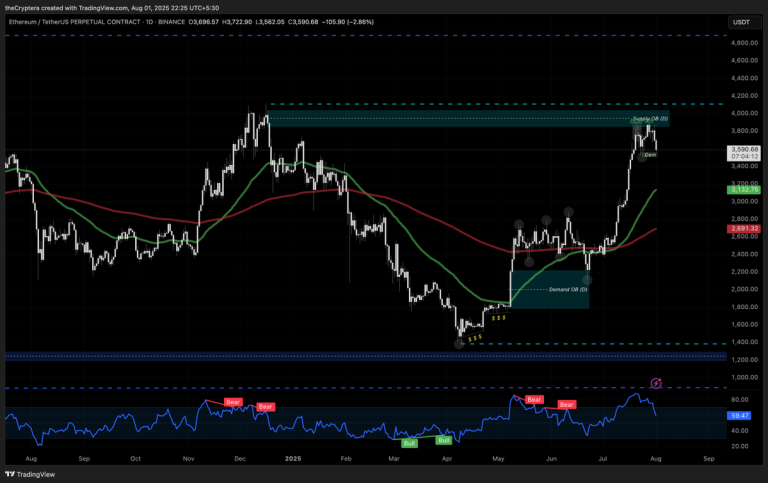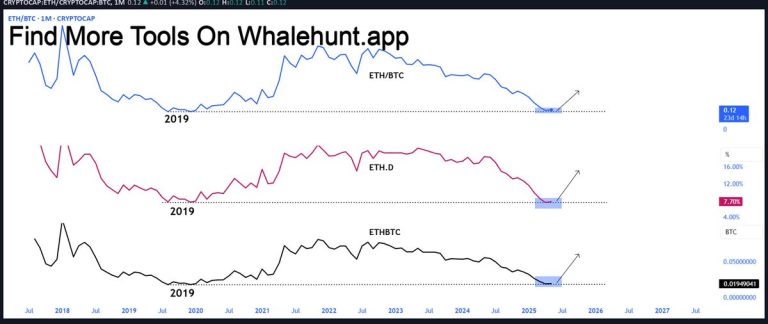
The Shift from Reactive to Predictive: A New Intelligence Layer for DeFi
The world of Decentralized Finance (DeFi) is rapidly evolving. Initially lauded for its transparency and accessibility, it has often been hampered by a user experience that demands constant attention and proactive decision-making. Users are expected to monitor markets, analyze opportunities, and execute trades – a demanding task, especially for those new to the space. However, a subtle but significant shift is underway, moving DeFi beyond simply *reacting* to market conditions towards *anticipating* them. This change, hinted at in recent observations about core system invariants and the emergence of intelligent agents, promises to reshape the landscape of decentralized finance.
The Fragility of Invariants and the Need for Robust Systems
Hari’s tweet on July 10th, 2025, points to a critical issue in software development, and by extension, in the construction of DeFi protocols: the delicate nature of core invariants. [1] An invariant, in this context, is a fundamental truth or rule that a system must always uphold to function correctly. While seemingly simple memory helpers might be easily modified, altering a core invariant is a far more complex undertaking. The tweet highlights the “subtlety” of the problem, suggesting that even seemingly minor changes can have unforeseen and potentially catastrophic consequences.
This fragility underscores a fundamental challenge in DeFi: building systems that are not only secure and transparent but also *robust* enough to withstand unexpected events and maintain their integrity over time. The need for robust systems isn’t just about preventing hacks; it’s about ensuring the long-term viability and reliability of the entire ecosystem. If core components are easily disrupted, user trust erodes, and the potential for widespread instability increases. This realization is driving a demand for more sophisticated infrastructure – infrastructure that can not only execute instructions but also *understand* the underlying logic and anticipate potential problems.
Beyond UI Optimization: The Rise of Intelligent Agents
This is where the work of Infinit Labs, as highlighted by John, comes into play. [2] John’s observation that most DeFi tools “wait for your input” is a keen one. Traditional DeFi interfaces require users to actively initiate every action. Infinit Labs, however, is building “agents” that are designed to anticipate user needs and act autonomously. This isn’t merely a matter of improving the user interface; it’s a fundamental shift in architecture. It’s the creation of an “intelligence infrastructure” for DeFi.
These agents aren’t simply automated trading bots. They are designed to *analyze* market data, *simulate* potential outcomes, and *act* across multiple blockchains – Base, Mantle, Ethereum, and beyond. This multi-chain capability is crucial, as liquidity and opportunities are increasingly fragmented across different Layer 2 solutions and alternative blockchains. The ability to seamlessly navigate this complex landscape is a significant advantage.
Consider a scenario: a user regularly swaps ETH for USDC on a specific decentralized exchange. A traditional DeFi tool would require the user to manually initiate this swap each time. An intelligent agent, however, could monitor market conditions, identify optimal swap times based on price slippage and gas fees, and automatically execute the trade on the user’s behalf, potentially saving them money and time.
But the potential goes far beyond simple swaps. Agents could be programmed to:
- Automate yield farming strategies: Constantly rebalancing positions to maximize returns across different protocols.
- Manage risk: Automatically adjusting exposure to volatile assets based on predefined risk parameters.
- Arbitrage opportunities: Identifying and exploiting price discrepancies across different exchanges.
- Liquidate positions: Proactively managing collateralized debt positions to avoid liquidation penalties.
The Implications of DeFi That “Thinks”
The concept of “DeFi that thinks” has profound implications. It moves DeFi closer to the original vision of a truly decentralized and autonomous financial system. By offloading the burden of constant monitoring and decision-making to intelligent agents, DeFi becomes more accessible to a wider audience. Users no longer need to be full-time traders or financial analysts to participate effectively.
However, this shift also introduces new challenges.
- Trust and Security: Users must trust that the agents are acting in their best interests and that their funds are secure. Robust security audits and transparent code are essential.
- Complexity: Designing and deploying intelligent agents requires a high level of technical expertise. Making these tools accessible to developers and users alike will be crucial.
- Governance: How will these agents be governed? Who is responsible if an agent makes a mistake? These are complex questions that need to be addressed.
- Centralization Risks: While aiming for decentralization, the development and control of these agents could become concentrated in the hands of a few powerful entities, potentially recreating centralized control points.
Furthermore, the reliance on predictive algorithms raises questions about market manipulation and fairness. If agents are programmed to anticipate market movements, could they inadvertently contribute to volatility or create unfair advantages for certain participants? Careful consideration must be given to the ethical implications of these technologies.
A Future of Autonomous Finance
The convergence of these two observations – the fragility of core invariants and the emergence of intelligent agents – paints a compelling picture of the future of DeFi. The need for robust and reliable systems is driving the development of more sophisticated infrastructure, and intelligent agents are poised to become a key component of that infrastructure.
This isn’t simply about automating existing processes; it’s about fundamentally rethinking how DeFi works. It’s about creating a financial system that is not only decentralized and transparent but also intelligent and autonomous. The journey will undoubtedly be complex, with challenges to overcome and risks to mitigate. However, the potential rewards – a more accessible, efficient, and resilient financial system – are well worth the effort. The future of DeFi isn’t just about *what* we build, but *how* it thinks.
Sources:
[1] https://t.co/dxy8Hj93Hi (Hari’s Tweet on Twitter)
[2] https://t.co/3rKv5PDgiS (John’s Tweet on Twitter)








